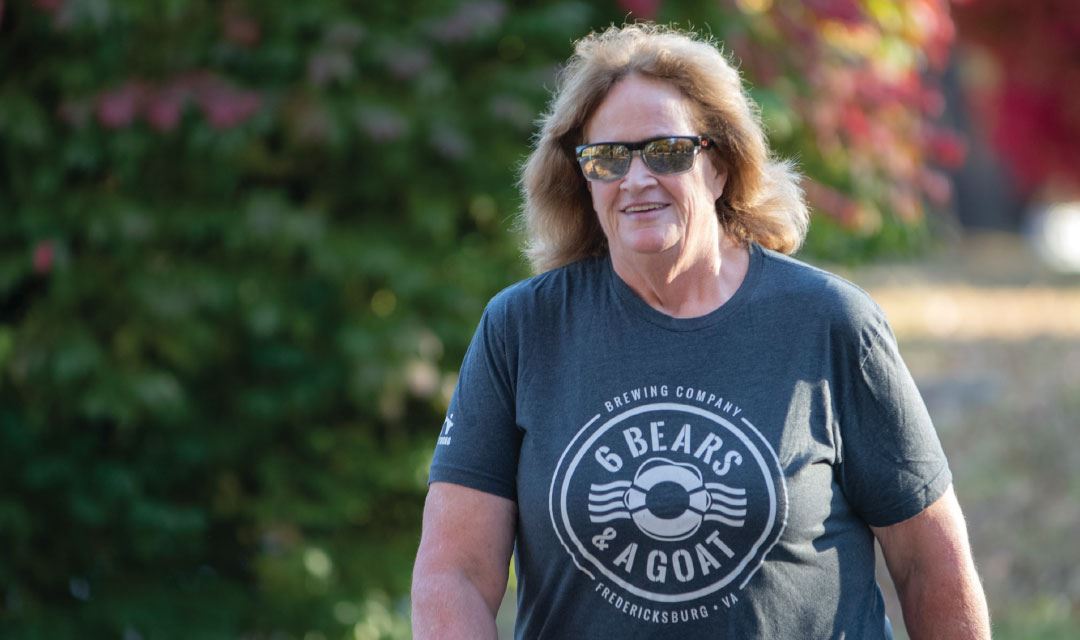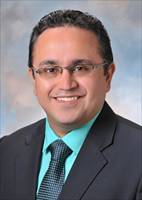“The difference is amazing...I just feel good.”

With determination and an expert bariatric surgery team, a woman transforms her life.
When Kathleen Curran, 54, decided to commit to losing weight and keeping it off, she knew it would be a challenge. But then, she was no stranger to facing down a challenge.
Overweight since childhood, she had spent her teen years in the frustrating cycle of “yo-yo” dieting, where she would lose weight, only to gain it all back. Then, in her early 20s, Kathleen needed surgery for gallstones and a cyst on her spleen.
Just months before that, Kathleen’s father had been beaten badly in a robbery and at first was not expected to survive his injuries.
“When we learned he would live, I had a feeling I’ll never forget,” she says. “The paramedics saved him. After that, I wanted to give back in some way.”
Thirty years of service in Emergency Medical Services was the way she chose to give back. A Colonia resident, she worked as a paramedic based in four area hospitals, including Robert Wood Johnson University Hospital (RWJUH) Rahway.
Powering Through
As years passed, Kathleen continued to gain weight. “Carrying all that equipment was tough,” she recalls. “My knees hurt so much, but I just put my weight out of my mind. And I was lazy. I didn’t want to diet.”
Still, she kept going, finally learning she had rheumatoid arthritis complicated with autoimmune issues. She left active status as a paramedic but joined the lecturing staff at Kean University in Union.
With medication finally addressing her autoimmune issues, she started to feel better physically. Now, she decided, she would finally tackle her weight. She weighed 346 pounds.
“Then the mental change came,” she recalls. “The biggest motivator, though, was the fact I was at the university, teaching nutrition to 18-year-olds. And here I am, I can’t catch my breath from walking across the campus. Just a little hypocritical, don’t you think?”
A Life Change

At Kathleen’s first consultation with Anish Nihalani, MD, Medical Director of the Surgical Weight Loss Program at RWJUH Rahway, he explained that bariatric surgery might be more difficult for her because of scarring from past surgeries.
“He said that the scarring might make it too difficult to do the surgery laparoscopically,” an approach that uses incisions smaller than those of traditional surgery, she recalls. “That meant the recovery would be harder.”
Despite that possibility, Kathleen forged ahead, embracing the presurgical program. She met with a nutritionist to learn how to eat healthier and how to change her relationship with food. Like all bariatric surgery candidates, she met with a psychiatrist so that her commitment to making the necessary eating and physical activity changes could be assessed. She also had a thorough physical workup.
The type of surgery Kathleen chose was a sleeve gastrectomy, the most common type of weight loss surgery. In this procedure, 70 percent of the stomach is removed. The rest is gathered into a small pouch, reducing the amount of food the stomach can hold.
“A sleeve gastrectomy reduces the capacity of the stomach down from two liters to about 14 ounces,” explains Dr. Nihalani. “In addition, it causes a huge hormonal and metabolic impact, specifically on ghrelin, known as the hunger hormone. Patients come back and tell us that they no longer have the cravings and desire to eat they once had.”
With all the preparations completed, Kathleen was ready for surgery. “I hadn’t been sure we could do the operation laparoscopically, but with a little luck, hard work and patience, we were able to get it done,” says Dr. Nihalani. “The procedure usually takes 45 minutes, but hers took two hours.”
Kathleen says she wasn’t surprised to wake up to find only a small incision. “I trusted Dr. Nihalani,” she says. “I knew he’d do his best.”
A year has passed, and Kathleen’s life is quite different. She has lost 113 pounds, and walking no longer makes her breathless. In fact, she walks 10,000 steps a day and works out five times a week. She continues to diet, with the hope of losing a few more pounds. And, she says, she just feels better.
“The difference is amazing. On a scale of 10, the pain in my knees has gone from nine or 10 down to a two, and I’m taking three medications instead of nine,” she says. “My blood pressure is normal. I just feel good.”
Asked for her advice to others who are fighting weight and other challenges, Kathleen offers the philosophy that works for her.
“Believe in yourself,” she says. “It may sound cliché, but it’s true. You have to believe in yourself and just do what you’ve got to do.”
A Leading Bariatric Program
 The Surgical Weight Loss Program at Robert Wood Johnson University Hospital Rahway is accredited by the American College of Surgeons as a comprehensive center with the Metabolic and Bariatric Surgery Accreditation and Quality Improvement Program (MBSAQIP), an organization that sets national quality standards for bariatric surgery centers. This designation means that the program has joined the ranks of the nation’s leading bariatric surgery programs.
The Surgical Weight Loss Program at Robert Wood Johnson University Hospital Rahway is accredited by the American College of Surgeons as a comprehensive center with the Metabolic and Bariatric Surgery Accreditation and Quality Improvement Program (MBSAQIP), an organization that sets national quality standards for bariatric surgery centers. This designation means that the program has joined the ranks of the nation’s leading bariatric surgery programs.
To learn more about weight loss surgery at RWJUH Rahway, call 732-499-6300 or visit Weight Loss and Bariatric Surgery.